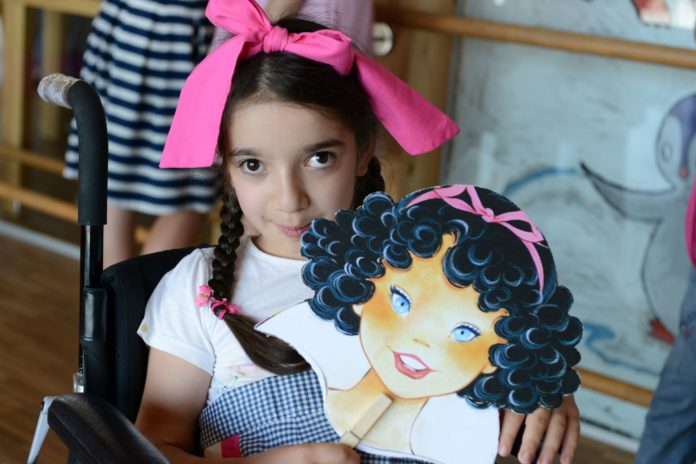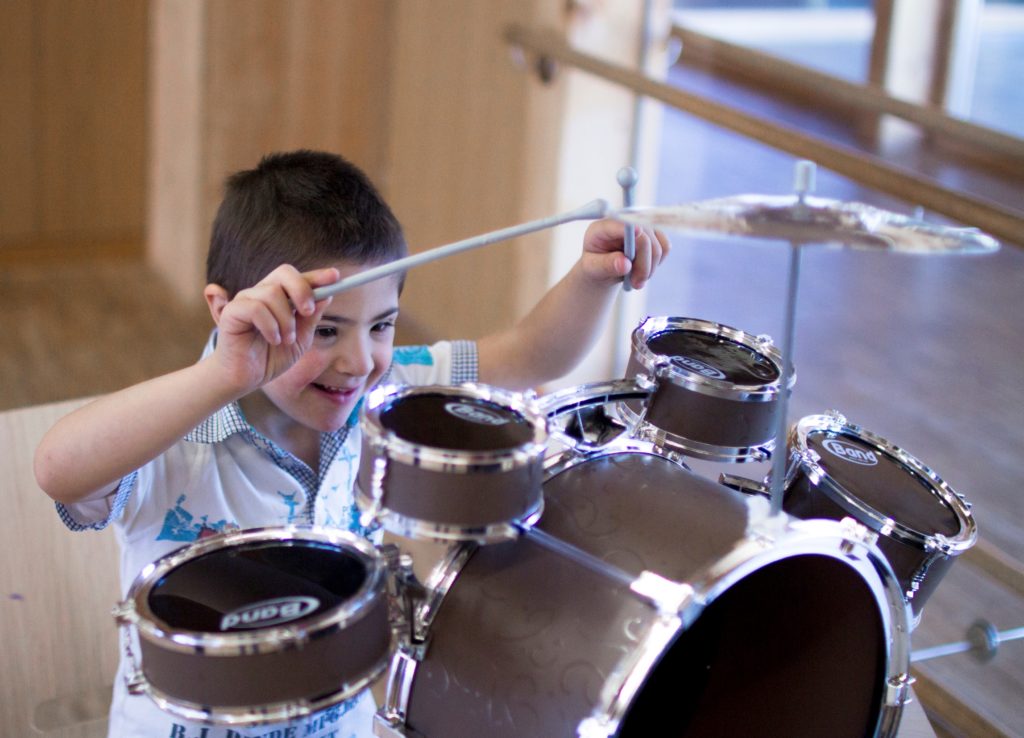By Sarah Stites
GYUMRI, Armenia – When my colleague and I called Katrin for a video-chat check-in, the 10-year-old floored us.
“This quarantine has helped me improve my relationship with my little brother,” she told us matter-of-factly.
Katrin is one of the 120 children who attend Emili Aregak, the social therapeutic center for kids with disabilities in Gyumri, Armenia, where I work. She loves to speak Russian, is usually sporting two braids, and has cerebral palsy.
Many of our kids who use wheelchairs rarely leave the house, due to the inaccessible stairs, sidewalks and transportation in our community. But Katrin’s mom has always prioritized integration. She pushes hard to make sure Katrin enjoys a life similar to those of others her age.
While this time at home has been difficult for Katrin, she has been an example to me as she searches for the bright side and thinks of others less fortunate than she.









